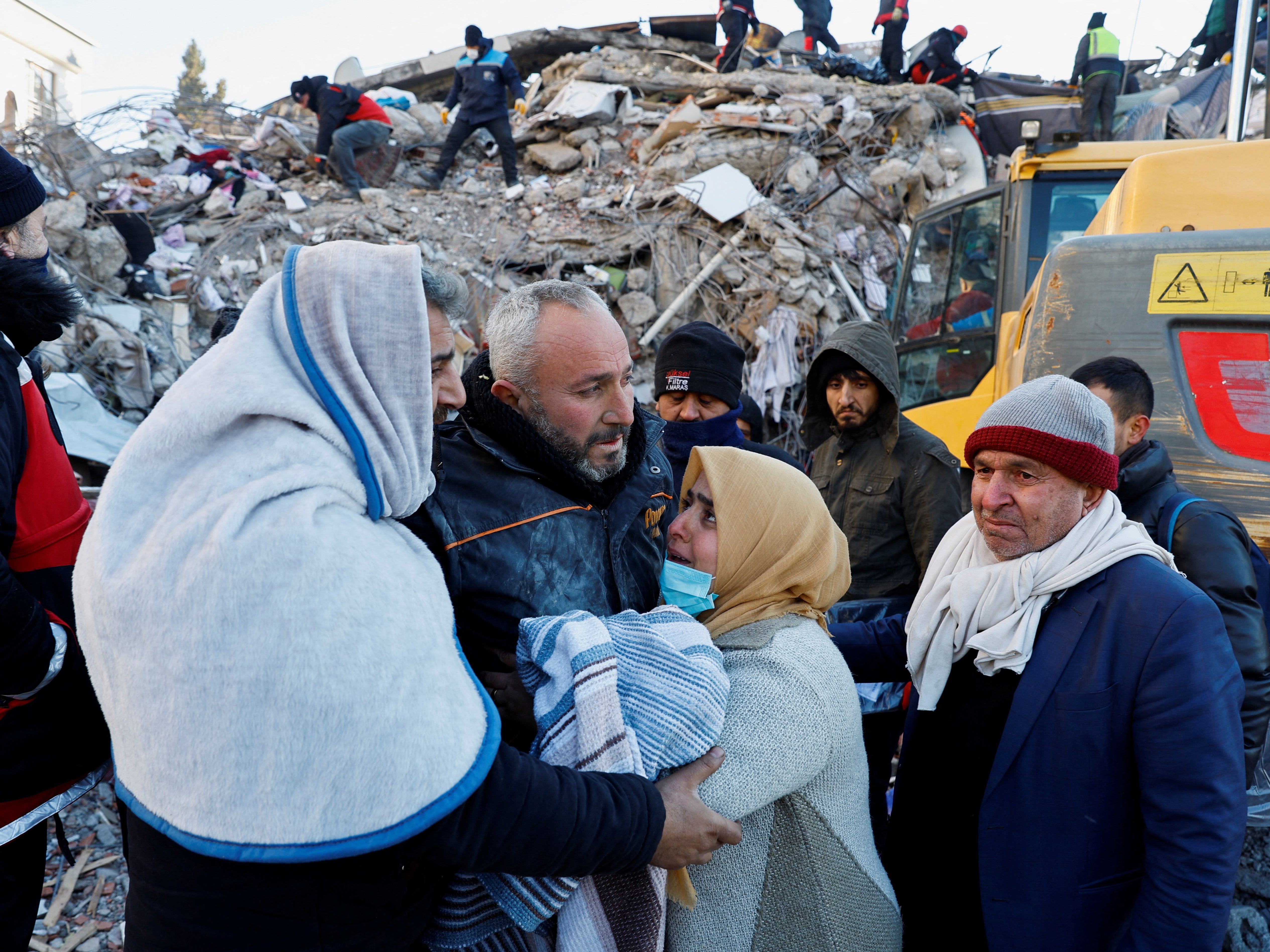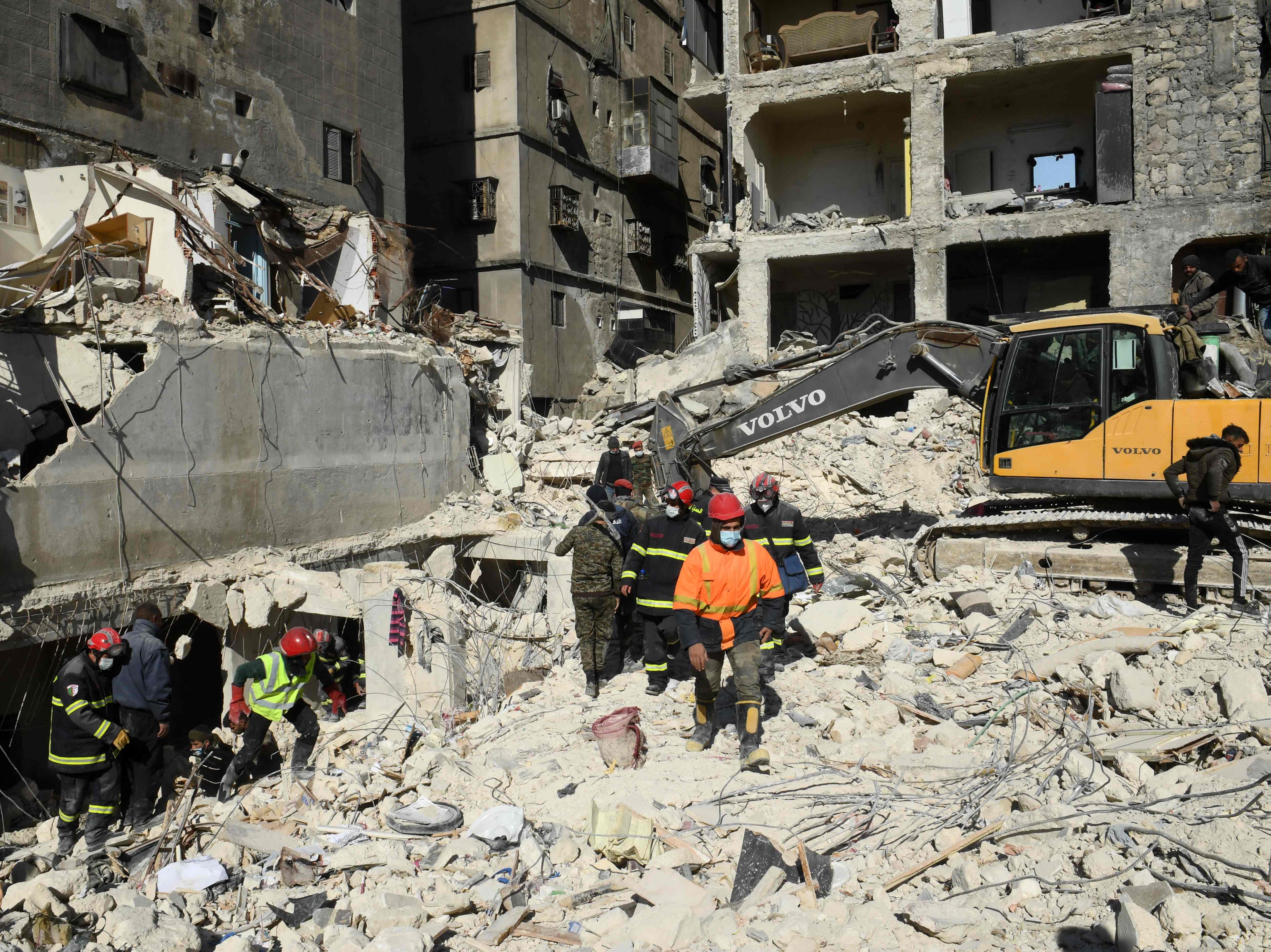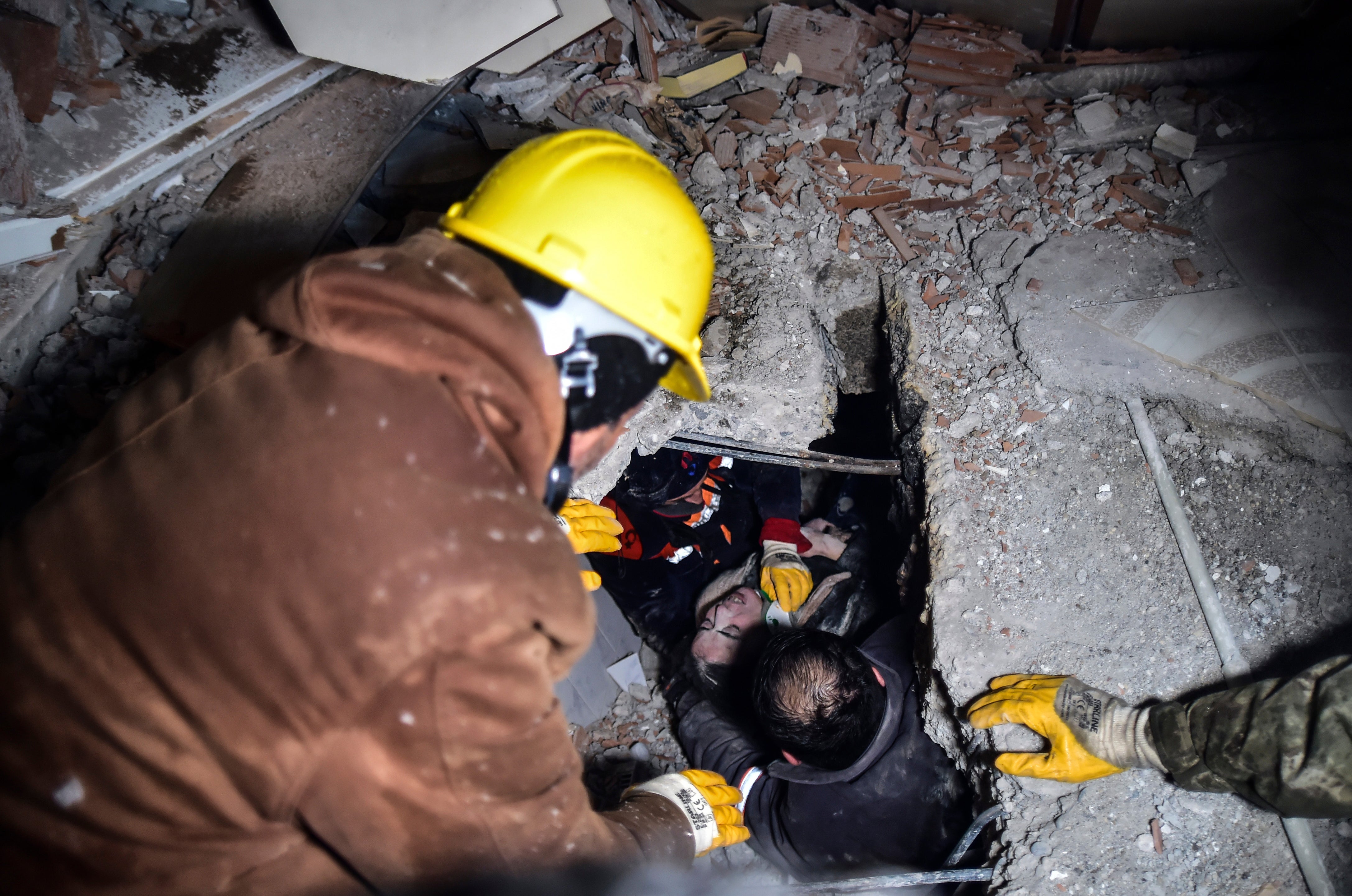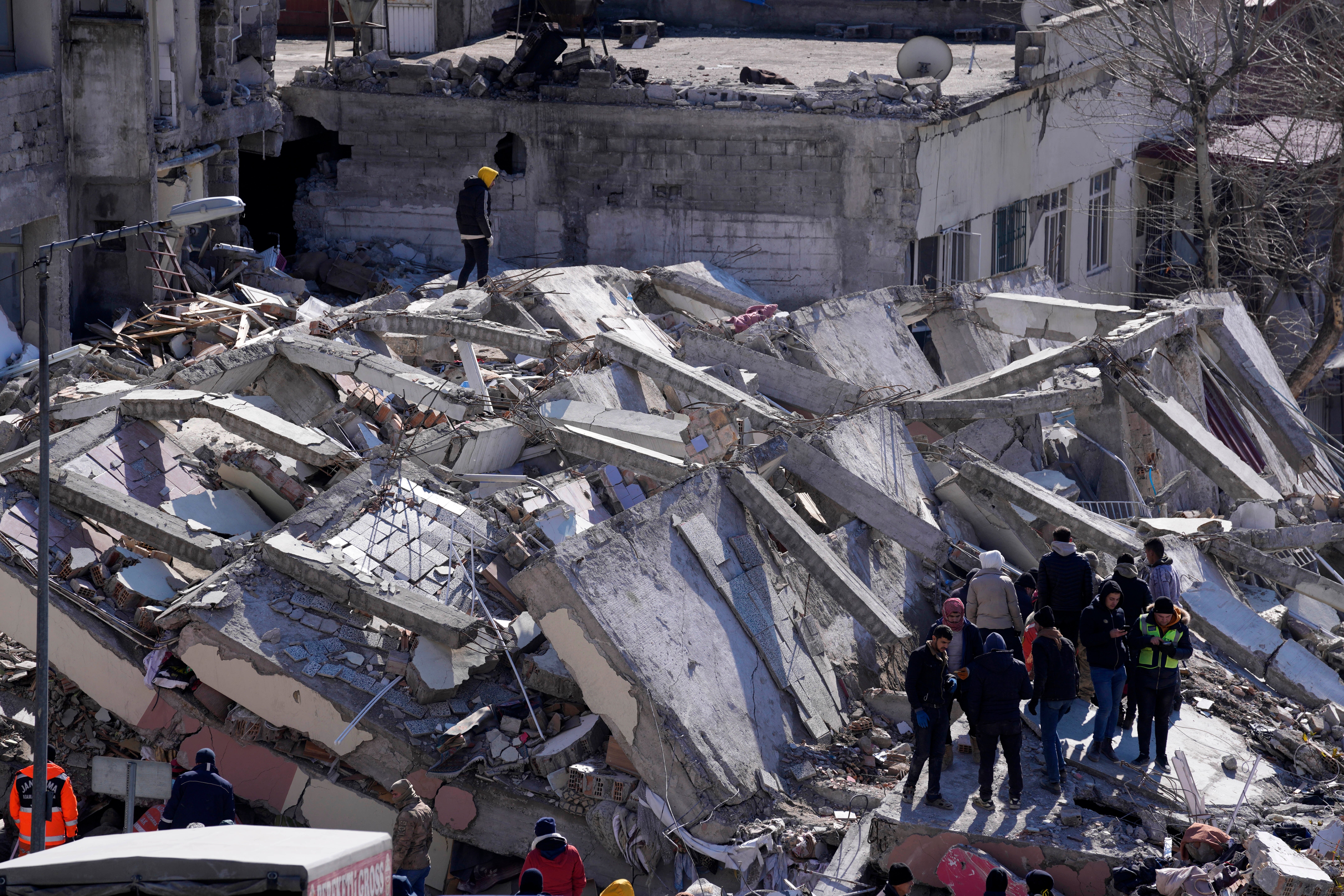Turkish and Syrian families in UK fear for loved ones caught in deadly earthquake
With communication systems down in some areas, Turkish and Syrian nationals in the UK have not been able to contact their homeland and don’t know if their family and friends are alive
Your support helps us to tell the story
From reproductive rights to climate change to Big Tech, The Independent is on the ground when the story is developing. Whether it's investigating the financials of Elon Musk's pro-Trump PAC or producing our latest documentary, 'The A Word', which shines a light on the American women fighting for reproductive rights, we know how important it is to parse out the facts from the messaging.
At such a critical moment in US history, we need reporters on the ground. Your donation allows us to keep sending journalists to speak to both sides of the story.
The Independent is trusted by Americans across the entire political spectrum. And unlike many other quality news outlets, we choose not to lock Americans out of our reporting and analysis with paywalls. We believe quality journalism should be available to everyone, paid for by those who can afford it.
Your support makes all the difference.Turkish and Syrian families in the UK fear for their loved ones after the deadly earthquakes that devastated both countries on Monday.
The initial 7.8 magnitude tremor is the worst to hit Turkey since 1999 with a death toll of more than 11,000 so far.
Rim Turkmani has relatives and friends in Aleppo, Syria, but doesn’t yet know if all have survived the natural disaster. Those that have are forced to lie down on cold streets as there is nowhere to seek shelter and going indoors is not safe, she told the Independent.

“Some of them are still in the streets now,” the research director for think tank LSE Ideas in London said.
“They don't feel that it's safe to go back to their homes because there are still aftershocks. Some of my friends are under the rubble. We don’t know whether they’re dead or alive in the south of Turkey.”
Student Serhat Balta, from Nottingham Trent University, told the Independent that the homes of his family in Elbistan, southern Turkey had been destroyed.
“Pretty much the whole city is wiped out and for us to recover will probably take 5 to 10 years,” he said. “There’s nothing left to call it a city, to be honest. And it’s not looking good.”


Mr Balta’s uncle and two aunties live in Elbistan. He said he feels “helpless and devastated” but is doing his best to support those needs.
He said two plane cargoes of aid have been organised to carry donated goods from Birmingham to Turkey. Mr Balta is one of many volunteers helping get the items from Nottingham to the airport.
“We extended the time for a few more days as there’s a lot of people in Midlands that’s coming down to Nottingham to donate,” he said. “Two cargoes plane flying out as well, which is organised by Turkey community centers.”

Dilan Altun, 22, has a large number of relatives in Elbistan, Turkey, including her grandparents, uncles, aunts, and cousins, many of whom have been left homeless.
“I’ve never seen my grandad cry – they’re trying to help others but they’ve got nothing themselves,” Ms Altun, from north London, said.

“People are hungry, kids, elderly (people) and pregnant women,” she continued. “People have to sleep outside in the rain and snow – some people have actually died from the weather conditions after being rescued from the rubble.
“All I can feel is guilt… I feel guilty to be in my warm home, I feel guilty for falling asleep in my bed when everyone is out there in the cold and helpless.
“The locals are pinpointing exactly where and how many people are under rubble but they receive (zero) help…
“They have to dig with their own hands and nails to try to get some people out.”




Join our commenting forum
Join thought-provoking conversations, follow other Independent readers and see their replies
Comments